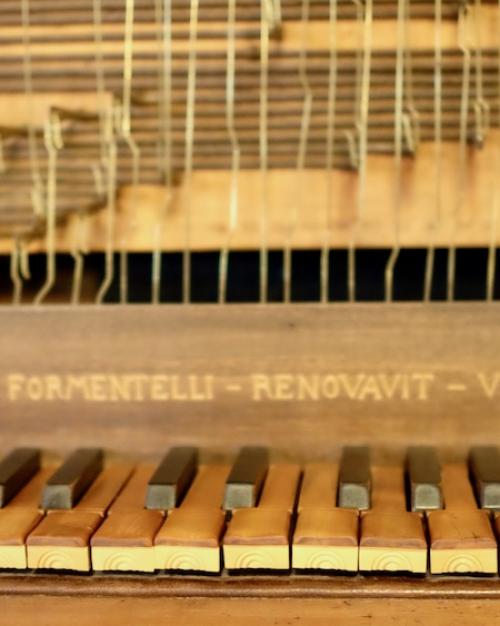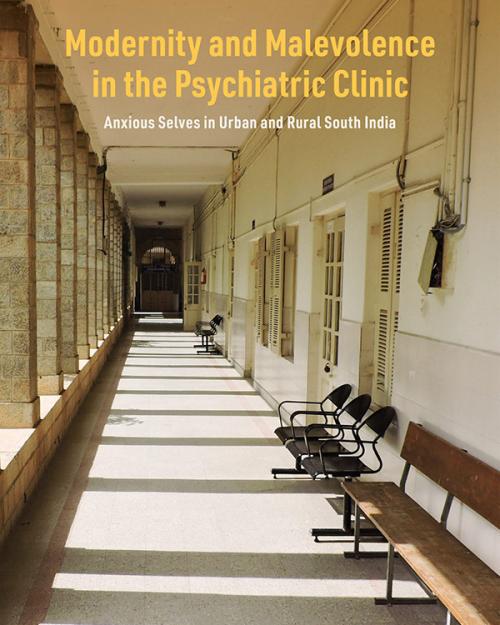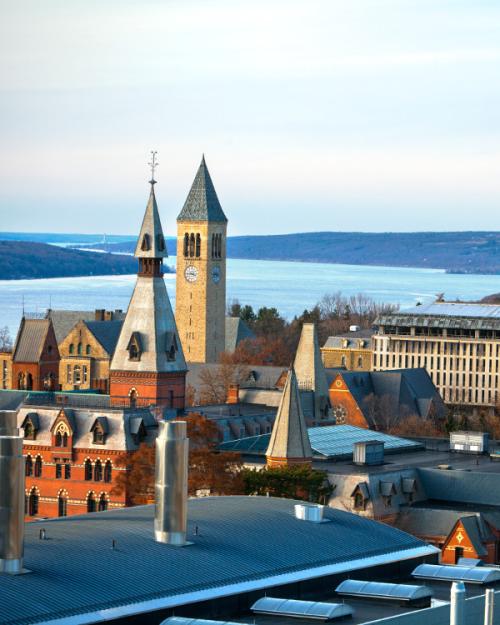Twelve exceptional early career scholars will come to Cornell to pursue research on a wide variety of topics in the social sciences, sciences and humanities as the 2024 cohort of Klarman Postdoctoral Fellows.
This fifth cohort of Klarman Fellows is the largest since the program was launched in 2019 with a major gift from Seth Klarman ’79 and Beth Schultz Klarman. The Klarmans renewed and expanded their support in 2023.
“Klarman Fellows exemplify the spirit of curiosity and collaboration at the heart of the College of Arts and Sciences, thanks to the generosity and foresight of Seth and Beth Klarman,” said Rachel Bean, interim dean of the College. “I am inspired and impressed by the impactful and timely research these gifted scholars will be undertaking together with the College’s stellar faculty members.
“Today’s Klarman Fellows are emerging leaders in their fields, across the humanities, social and natural sciences, making contributions with lasting intellectual, artistic and technological ramifications. The College provides a vigorous and supportive atmosphere where these original ideas and novel investigations can grow and flourish, to the betterment of our world,” said Bean.
Klarman Fellows work without specific grant requirements and do not have to teach, although some choose to. The program is designed to allow Fellows to maximize their focus on their research agenda, and to expand or shift plans as projects develop and opportunities arise.
The 2024 cohort of Klarman Fellows are:
Lili Alderson, a doctoral candidate in physics at the University of Bristol. She studies exo-Neptunes – Neptune-sized planets outside of our Solar System. As a Klarman Fellow, Alderson will undertake uniform analysis and modeling of exo-Neptune atmospheres to search for trends across the population. Her research will provide important insights into the processes and
compositions at play within a variety of Neptunian atmospheres, forming the first step in interpreting the exo-Neptunes as a class of planets in their own right. Alderson’s faculty host is Nikole Lewis, associate professor of astronomy (A&S).
Lillian Datchev, a doctoral candidate in history at Princeton University. Her research investigates how merchants shaped the intellectual culture of premodern Europe. During her Klarman Fellowship, she will work on her book project, “The Origins of Archaeology,” which reveals how late medieval Italian merchant culture gave rise to early modern antiquarian scholarship. She will work with faculty host Benjamin Anderson, associate professor of history of art and visual studies (A&S) and co-host Eric Rebillard, the Avalon Foundation Professor in the Humanities (A&S).
Jian Gao, a doctoral candidate in history at the University of Texas, Austin. His research redefines the role of Chinese migrants in the Americas, particularly in Mexico, showing them as proactive agents who built transnational networks across China, Mexico and the U.S. to overcome Sinophobia and create better opportunities. It links the histories of Chinese American and Chinese Mexican communities while providing a transpacific perspective on the U.S.-Mexico borderlands. The study also challenges traditional views on Chinese remittance letters by revealing their emotional depth, thereby contributing new insights into the emotional experiences of non-European migrants. He will work with faculty host Raymond Craib, the Marie Underhill Noll Professor of History (A&S).
Zoë Henry, a doctoral candidate in English at Indiana University, Bloomington. Her research explores how women across a mixed-race modernist archive negotiated the conditions of public visibility when privacy is preferable, arguing that they responded to the entwined pleasures and dangers of 20th century urban life by using the resources of the city as a kind of stage play. The novels, poems and performances she surveys reflect the emergence of women in public space. Her faculty host is George Hutchinson, the Newton C. Farr Professor of American Culture (A&S).
Katharine Lindquist, a doctoral candidate in anthropology at Emory University. Her book project investigates the political subjectivities of young, middle-class professionals in urban Uganda and their role in the recent wave of social justice movements in the country, based on 24 months of ethnographic research in the capital, Kampala. She will work with faculty host Saida Hodžić, associate professor of anthropology (A&S), on a broader critique of westernized ideals of “progressive” social justice movements through an ethnographic analysis of the experience of Ugandan activists.
Davide Napoli, a doctoral candidate in classics at Harvard University. His book project offers a new literary history of classical Greece and a political theory of democratic polarization, which demonstrates that ancient Greek polarization largely avoided the divisive extremes affecting many contemporary polities and provided instead a generative framework for intellectual innovation. His faculty host is Jill Frank, the President White Professor of History and Political Science (A&S).
Nicholas Nelsen, a doctoral candidate in applied mathematics at the California Institute of Technology. He researches scientific machine learning (SciML), the application of machine learning to high-dimensional scientific data and physical systems. As a Klarman Fellow, Nelsen will work on a mathematical and statistical theory for SciML. This improved theoretical understanding will lead to new, reliable and highly accurate SciML methods and has potential to scale up quantum chemical calculations and improve numerical weather prediction, among other applications. His faculty co-hosts are Alex Townsend, associate professor of mathematics (A&S), and Yunan Yang, the Goenka Family Assistant Professor in Mathematics (A&S).
Inbal Ravreby, a doctoral candidate in brain sciences at the Weizmann Institute of Science. Ravreby focuses on social cognitive neuroscience at the behavioral, physiological and neural levels. As a Klarman Fellow, Ravreby will examine subconscious self-other comparisons that are linked to self-other blurring. Within this line of research, she will examine whether people subconsciously compare between the specific typical dynamics of their own facial expressions and others’ facial expressions, and in turn, the similarity influences the degree of liking, familiarity, emotional understanding and memory performance. Her faculty hosts are Vivian Zayas, professor of psychology (A&S) and Adam Anderson, professor of psychology in the College of Human Ecology.
Victor Souza, a doctoral candidate in pure mathematics at the University of Cambridge. He studies the phenomena of synchronization from the mathematical point of view with the goal of providing rigorous and informed descriptions of the conditions under which spontaneous synchronization occur. As a Klarman Fellow, he will extend previous research on networks of oscillators to realistic scenarios, such as power grids, the internet and social networks. Souza’s faculty host is Steven Strogatz, the Susan and Baron Winokur Distinguished Professor for the Public Understanding of Science and Mathematics (A&S), and his co-host is Martin Kassabov, professor of mathematics (A&S).
Eraldo Souza dos Santos, who holds a Ph.D. in philosophy from Panthéon-Sorbonne. A historian of political thought, Souza dos Santos researches how political concepts have come to shape political discourse and political practice, and how political actors have come to contest the meaning of these concepts in turn. During the Klarman fellowship, he will prepare his first book for publication, tentatively titled “Civil Disobedience: A Global American History,” and start research for a new project on the racial underpinnings of contemporary discourses of global populisms and the threats to liberal democracy. His faculty host is Alexander Livingston, associate professor of government (A&S).
Fatima-Ezzahrae Touilila, a doctoral candidate in Middle Eastern, South Asian and African studies at Columbia University. Her book project, “Colonizing Islam: Imaginaries of Religion, Race, and Sovereignty in French North Africa,” examines what it meant for France to attempt to rule as a Muslim power in North Africa from the 1900s to the 1920s. Her project centers marginalized North African voices at the core of discourses on colonial subjecthood, race and Islamic belonging. Her faculty host is Paraska Tolan-Szkilnik, assistant professor of history (A&S).
Olga Verlato, a doctoral candidate at New York University. Her research offers a new framework to understand how the dominant political-linguistic configuration of our world today – the monolingual nation state – came to be. Focusing on modern Egypt in its wider Mediterranean context and examining sources in multiple languages (Arabic, Italian, French, English and Ottoman-Turkish), Verlato shows that the institutionalization of monolingualism in the modern period was the product of struggles and debates over a plurality of tongues. Her faculty host is Ziad Fahmy, professor of Near Eastern Studies (A&S), and her co-host is Deborah Starr, professor of Near Eastern Studies (A&S).





